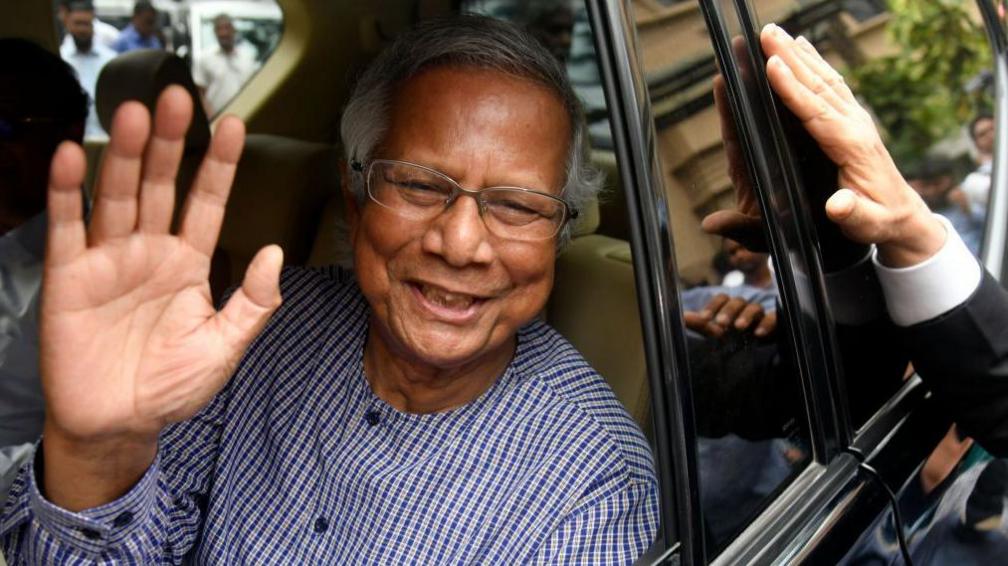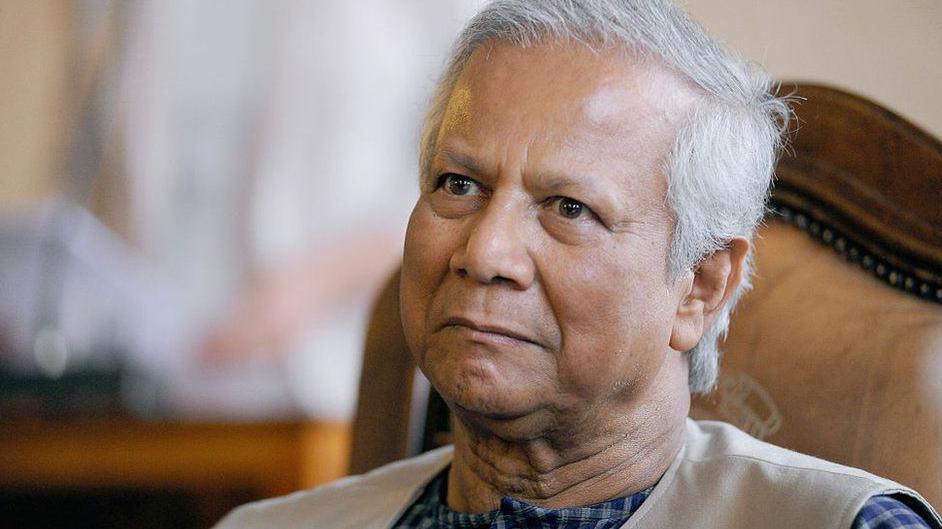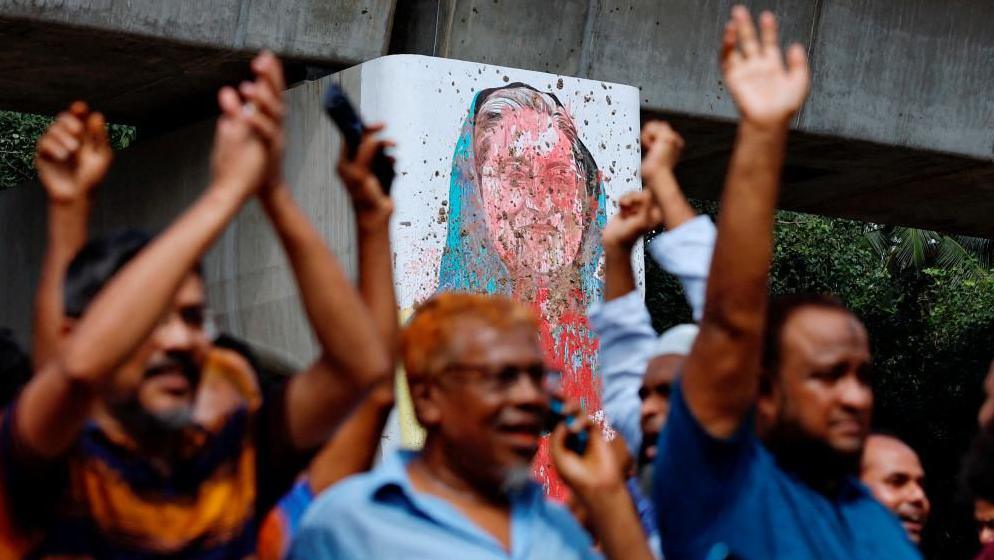The Nobel winner tasked with leading a nation out of chaos

The microloans pioneer is known as a 'banker to the poor'
- Published
Nobel Peace Prize laureate Muhammad Yunus has been chosen to lead Bangladesh's interim government after the country's former prime minister Sheik Hasina resigned and fled the country following weeks of violent unrest.
A well-known critic of Ms Hasina, Mr Yunus called the day of Ms Hasina's departure Bangladesh's "second liberation day".
So what do we know about the 84-year-old Nobel laureate?
Banker to the poor
One of nine children, Mr Yunus was born to a family of Muslim merchants in the coastal Bangladeshi city of Chittagong. At 25 he travelled to the United States to study under a Fulbright scholarship, and returned to Bangladesh in 1971 – the same year the country won its independence from Pakistan in a brutal, bloody war.
Upon his return, Mr Yunus was elected to head Chittagong University’s economics department, and soon became passionately involved with combatting the famine that ravaged Bangladesh in the mid-70s.
“I became involved in the poverty issue not as a policymaker or a researcher,” he said in a 2005 lecture at the Commonwealth Institute in London. “I became involved because poverty was all around me.
“I could not turn my eyes away from it… I wanted to do something immediate to help people around me.”
It was in this way that Mr Yunus became a pioneer of a concept known as “microcredit”: when people who are too impoverished to borrow from a traditional bank are given extremely small loans, often allowing them to become self-employed.
In 1983 Mr Yunus founded Grameen Bank, the self-proclaimed “pioneer microcredit organisation in the world”, which has since accumulated more than nine million clients.
In a 2002 interview with the BBC, he described microcredit as a “need of the people”.
"Whatever name you give it, you have to have those financial facilities coming to them because it is totally unfair... to deny half the population of the world financial services,” he said.
Mr Yunus's scheme was so successful that even beggars had been able to borrow money under his scheme.
Both Mr Yunus and Grameen Bank were awarded the Peace Prize in 2006 for their work to “create economic and social development from below”, according to the Nobel Prize website.
Some analysts however have criticised the concept of micro-financial institutions, saying they charge exorbitant interest rates and use coercive debt collection methods.
Accusations and smear campaigns
Mr Yunus himself has weathered a storm of hostility and controversy in Bangladesh though, including from Ms Hasina, the leader he is now set to replace.
He attracted the ire of the former prime minister after announcing plans in 2007 to set up his own “Citizen Power” party.
Ms Hasina notoriously accused Mr Yunus of “sucking blood from the poor”, and in 2011 her government removed him as head of Grameen Bank. In 2013, he faced a state-backed smear campaign that accused him of being un-Islamic and promoting homosexuality, after he signed a joint statement criticising the prosecution of gay people in Uganda.
Mr Yunus has also faced charges based on allegations that he received money without government permission, and more recent allegations that he embezzled money from one of his company’s workers’ benefits fund.
In January of this year he was sentenced to six months in prison for violations of labour law, which he denied, and in June he and 13 others were indicted on embezzlement charges. Although he since been granted bail, he now faces more than 100 cases regarding labour violations and graft accusations.
Mr Yunus has denied all charges, claiming that attacks against him are politically motivated.
Such controversies have done little to Mr Yunus’s appeal with many of his supporters, though, who claim he is being targeted as a result of his acrimonious relations with Ms Hasina.
Asif Mahmud, a key leader of the Students Against Discrimination (SAD) group, posted a striking image to Facebook on Tuesday: a red tile with white text – the same format Mr Mahmud has used for dozens of statements relating to the protests and their aftermath.
This one had just five words: “In Dr Yunus, we trust.”
Related topics
- Published7 August 2024

- Published7 August 2024
